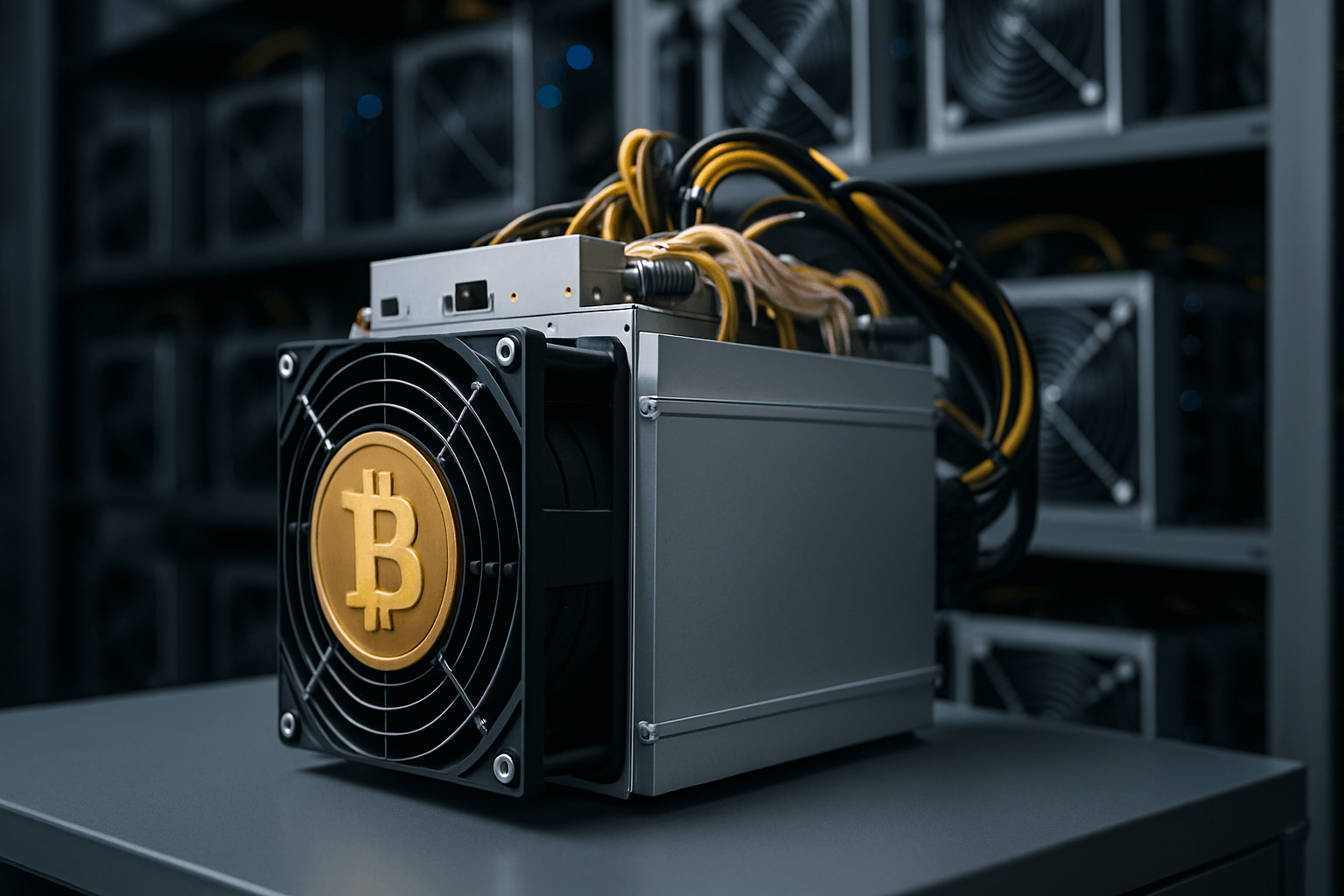Borrowing
What is Collateralized Lending? Everything You Need to Know
January 07, 2024
Borrowing
January 07, 2024

Almost all crypto loans are collateralized; find out what this means for you in this article
Collateralized lending is one of the key features of decentralized finance (DeFi), a hot field that aims to provide open and permissionless access to various financial services using blockchain technology. But how does collateralized lending differ from traditional lending?
In this article, we'll take a deep dive into the world of crypto loans and collateralized lending. We'll cover what collateralized lending is, how it differs from traditional lending, why it requires collateral, and what types of assets can be used as collateral through popular DeFi platforms such as Aave and Compound.
A collateralized loan is a type of crypto loan that lets you borrow money by using an asset as a guarantee of repayment. It is a common practice in the world of centralized finance but also in the crypto industry and the world of DeFi.
There are two types of collateralized lending: undercollateralized and overcollateralized.
Most loans in crypto, and especially in DeFi, are overcollateralized loans. This means that you need to post a certain amount of crypto holdings in a smart contract in order to borrow.
Overcollateralized loans require collateral because they are based on trustless and decentralized systems that do not rely on intermediaries or third parties to enforce the repayment of the loan. Instead, they use smart contracts, which are self-executing agreements that run on the blockchain and follow predefined rules.
Collateral acts as a security mechanism that ensures that the borrower will repay the loan or face the consequences of losing their collateral. When taking out crypto loans, collateral protects the lender from the risk of default or non-payment by the borrower.
Collateral is usually valued in terms of its market price, which can fluctuate depending on supply and demand, volatility, and other factors. When dealing with crypto loan platforms, it's important to understand some key concepts including:
*Learn more about DeFi interest rates in this comprehensive guide.
*Learn more about the specifics for fixed interest rates and floating interest rates.
If the market price of your collateral drops below a certain threshold, your loan becomes undercollateralized, and you risk being LIQUIDATED.
Liquidation is the process of selling your collateral to repay your debt. During liquidation, you may also be charged a liquidation penalty. A liquidation penalty is a fee that is charged by the crypto lending platform to cover the cost of liquidation.
Liquidation can result in the loss of the entirety of your collateral, therefore, it is important to monitor your loan status and collateral value regularly and take preventive measures, such as adding more collateral, and repaying some or all of your debt before it becomes too risky.
In traditional finance, you will typically receive a notice before your loan is liquidated asking you to increase the amount of your deposited collateral or pay down some of your principal. These notices are known as "margin calls" and they're steps on the way towards liquidation. DeFi loans do not usually provide margin calls, instead moving to automatically liquidate your collateral at a certain LTV.
DeFi crypto loans are secured by crypto holdings locked in a smart contract. The borrower can take out the loan in a different crypto asset, such as a stablecoin or another crypto token. Much like a traditional loan, crypto lenders charge interest rates on crypto loans.
There are many platforms in DeFi that offer crypto loans, including Aave, Compound, MakerDAO, and others. Each of these crypto loan providers has different loan terms including differing interest rates, repayment schedules, and loan processes. However, they all share some common characteristics, including:
One of the most important aspects of crypto loans is the type of assets that can be used as collateral. Different crypto loan platforms have different criteria for selecting and listing collateral assets. These criteria include:
Some of the most common and popular collateral assets in DeFi are:
ETH is the native asset of the Ethereum blockchain, which hosts most DeFi protocols and crypto backed loan providers. ETH is widely used as collateral because of its high market capitalization, liquidity, and network effects.
WBTC is an ERC-20 token that represents bitcoin on the Ethereum blockchain. WBTC is created by locking bitcoin in specified custodian and minting an equivalent amount of WBTC. WBTC is used as collateral for bitcoin-backed loans because it combines the value and popularity of bitcoin with the functionality and interoperability of Ethereum.
Stablecoins are crypto assets that are pegged to a stable fiat currency, such as the U.S. dollar. Stablecoins are used as collateral because they offer low volatility, high liquidity, and a stable store of value. Some of the most popular stablecoins in DeFi include DAI, USDC, and USDT.
There are many other tokens that can be used as collateral in DeFi, depending on the platform. In fact, most popular cryptocurrencies can be used as collateral for crypto loans. Some examples include tokens like Chainlink (LINK), Uniswap (UNI), Aave (AAVE), Compound (COMP), and others.
These tokens are usually associated with a specific protocol or application, and they usually provide governance or utility functions. They may have higher volatility, lower liquidity, or higher correlation with other crypto assets, making them riskier but also potentially easier to use as collateral.
Most crypto loans use Eth, WBTC, ERC-20 tokens or stablecoins as collateral, but collateral in DeFi is constantly evolving as new crypto loan platforms, assets, and innovations emerge in the space. Users should make sure they understand how crypto loans work including the associated risks and rewards before taking out a crypto loan.
Crypto-collateralized lending allows you to borrow money by using crypto holdings or assets as a guarantee of repayment. It has advantages compared to loans from traditional banks or credit cards, but it also comes with downsides. Here are some of the main pros and cons of collateralized lending:
1). You can take out crypto loans anonymously & without credit score checks. Unlike traditional loans, which require you to have a good credit history, a verified identity, and other criteria, collateralized loans only require you to have enough collateral to secure your loan. This means that you can access crypto loans regardless of your financial background, and without regards to your personal details.
2). You can take out any amount (as long as you have enough collateral). While ordinary loans have fixed limits and terms, crypto-collateralized loans allow you to borrow as much as you want as long as you have enough collateral to cover your crypto loan, and provided the lending protocol has enough liquidity. With enough collateral, you can access liquidity according to your needs and preferences.
3). You can offer a variety of assets as collateral (flexibility). DeFi loans allow you to use a wide range of crypto assets as collateral, such as Ethereum, Bitcoin, stablecoins, and others. This contrasts from some centralized crypto lending platforms(CeFi) that offer less collateral options. DeFi loans may allow you to better leverage your existing crypto portfolio, diversify your risk, and take advantage of market opportunities.
4). You don’t rely on a centralized platform or bank. Unlike traditional loans, which are issued and managed by centralized entities, such as banks or financial institutions, collateralized crypto loans are issued and managed by decentralized platforms like Aave, Compound, MakerDAO, and others. These platforms run on the blockchain and use smart contracts to automate the lending and borrowing process without the need for intermediaries or third parties. This means that you can enjoy more transparency, security, and autonomy over your loans.
1). You can only borrow up to a percentage value of your collateral. Unlike traditional loans, which allow you to borrow more than the value of your collateral, collateralized crypto loans only allow you to borrow up to a portion of the value of your collateral. This means that you need to have enough collateral to exceed your entire loan amount, which can limit your borrowing power.
2). Collateral may be liquidated at any time. Traditional loans may give you some grace period or flexibility in case of default or non-payment, but collateralized crypto loans will automatically liquidate your collateral if it drops below a certain value. This means that you need to monitor your loan status and collateral value constantly and take preventive measures if your collateral value falls. Such measures can include adding more collateral, repaying some of your debt, or closing your loan out entirely before it becomes too risky.
3). Collateralized lending can be difficult for beginners. Unlike traditional loans, which rely on familiar interfaces and processes, collateralized crypto loans through DeFi can make it challenging for beginners to get a crypto loan. Users have to set up a crypto wallet and understand the technical details and complexities of DeFi platforms and protocols in order to successfully take out a loan.
Once you've taken the loan out, you have to understand how to monitor your loan health, make loan payments on time, and ensure the value of your collateral never falls into liquidation territory. This can make collateralized lending in DeFi a daunting and frustrating experience for beginners and experienced borrowers alike.
If you're looking to get a crypto loan, but you're overwhelmed by the complexity of various DeFi protocols and crypto loan providers, Rocko may be for you.
Rocko is a new platform that enables crypto owners to easily and securely borrow from popular DeFi protocols like Aave, Compound, and Morpho and get funds in minutes — no experience needed! Use the loan to purchase real estate, pay down higher-rate debt, make everyday purchases, and much more.
Rocko also provides a loan management dashboard and tools like text and email alerts to help manage your loan and collateral. The Rocko team consists of experienced crypto enthusiasts who are ready to help you with any questions you may have. You can join the Rocko Discord server, follow our Twitter account, or visit our resource center to learn more about DeFi borrowing.
Sign up for Rocko and get a loan today!
Rocko does not guarantee the reliability of the Site content and shall not be held liable for any errors, omissions, or inaccuracies. The opinions and views expressed in any articles on rocko.co are solely those of the author(s) and do not reflect the opinions of Rocko. The information provided on the Site is for informational purposes only, and it does not constitute an endorsement of any of the products and services discussed or investment, financial, or trading advice. A qualified professional should be consulted prior to making financial decisions.

Rocko How-tos
Lock In Your Rate: How Kairos Swap Brings Fixed-Rate Lending to DeFi If you've ever borrowed against your crypto on Aave, Morpho, or similar…
September 15, 2025

Crypto & DeFi
Why Borrow Against Staked ETH? Liquid-staking tokens (LSTs) such as stETH, wstETH, cbETH and rETH let you keep earning staking rewards while…
June 17, 2025

Crypto & DeFi
Bitcoin Mining Loans: How to Fund Your Mining Business Bitcoin mining is the backbone of the Bitcoin network—a decentralized process where…
May 07, 2025